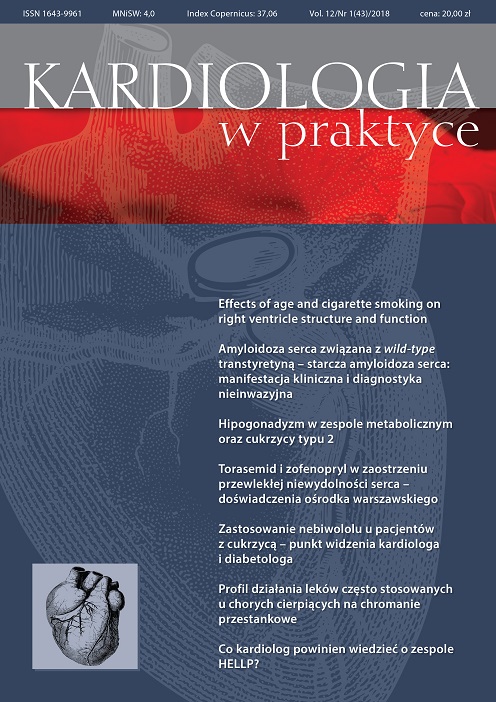Hypogonadism in metabolic syndrome and type 2 diabetes mellitus Review article
Main Article Content
Abstract
Low levels of testosterone are highly prevalent among patients with type 2 diabetes, metabolic syndrome and visceral adiposity. Clinical indications suggest an association between testosterone levels and metabolic disorders. In patients with type 2 diabetes and metabolic syndrome low testosterone is associated with a high prevalence of symptomatic hypogonadism, on the other hand testosterone deficiency may have a negative effect on metabolism, development of insulin resistance. Hypogonadism is defined as a complex of signs and symptoms due to testosterone deficiency or inappropriate productions. Diagnosis is based on clinical symptoms and signs and laboratory measurements. Testosterone replacement therapy is acceptably safe, provided established guidelines adhered to, reduces insulin resistance and improves various metabolic and anthropometric parameters.
Downloads
Article Details

This work is licensed under a Creative Commons Attribution-NonCommercial 4.0 International License.
Copyright: © Medical Education sp. z o.o. This is an Open Access article distributed under the terms of the Attribution-NonCommercial 4.0 International (CC BY-NC 4.0). License (https://creativecommons.org/licenses/by-nc/4.0/), allowing third parties to copy and redistribute the material in any medium or format and to remix, transform, and build upon the material, provided the original work is properly cited and states its license.
Address reprint requests to: Medical Education, Marcin Kuźma (marcin.kuzma@mededu.pl)
References
2. Morales A., Schulman C.C., Tostain J. et al.: Testosterone deficiency syndrome (TDS) needs to be named appropriately – the importance of accurate terminology. Eur. Urol. 2006; 50: 407-409.
3. Jones T.H., Arver S., Behre H.M.: Testosterone Replacement In Hypogonadal MenWith Type 2 Diabetes and/or Metabolic Syndrome (the TIMES2 Study). Diabetes Care 2011; 34: 828-834.
4. Pitteloud N., Mootha V.K., Dwyer A.A. et al.: Relationship between testosterone levels, insulin sensitivity, and mitochondrial function in men. Diabetes Care 2005; 28: 1636-1642.
5. Trzeciak W.H.: Synteza, transport i mechanizm działania androgenów. W: Semczuk M., Kurpisz M. (red.): Andrologia. PZWL, Warszawa 2007: 68-88.
6. Randall V.A.: The role of testosterone in spermatogenesis. W: Nieschlag E., Behre H.M. (red.): Testosterone – action, deficiency, substitution. Springer-Verlag, Berlin 1998: 143-169.
7. Snyder P.: Effects of age on testicular tunction and consequences of testosterone treatment. J. Clin. Endocrinol. Metab. 2001; 86: 2369-2372.
8. Dean J.D., McMahon C.G., Guay A.T. et al.: The International Society for Sexual Medicine’s Process of Care for the Assessment and Management of Testosterone Deficiency in Adult Men. J. Sex. Med. 2015; 12(8): 1660-1686.
9. Selvin E., Feinleb M., Zhang L. et al.: Androgens and diabetes in men: results from the Third National Health and Nutrition Examination Survey (NHANES III). Diabetes Care 2007; 30: 234-238.
10. Feldman H.A., Longcope C., Derby C. et al.: Age trends in the level of serum testosterone and other hormones in middle-aged men: longitudinal results from Massachusetts Male Aging Study. J. Clin. Endocrinol. Metab. 2002; 87: 589-598.
11. Cohen P.G.: The hypogonadal-obesity cycle: Role of aromatase in modulating the testosterone-estradiol shunt – a major factor in the genesis of morbid obesity. Med. Hypotheses 1999; 52: 49-51.
12. Traish A.M., Saad F., Guay A.: The Dark Side of Testosterone Deficiency: II. Type 2 diabetes and insulin resistance. J. Androl. 2009; 30: 32-32.
13. Basaria S., Muller D.C., Carducci M.A. et al.: Hyperglycemia and insulin resistance in men with prostate carcinoma who receive androgen-deprivation therapy. Cancer 2006; 106: 581-588.
14. Dhindsa S., Miller M.G., McWhirter C.L. et al.: Testosterone concentrations in diabetic and nondiabetic obese men. Diabetes Care 2010; 33: 1186-1192.
15. Oh J.Y., Barrett-Connor E., Wedick N.M. et al.: Endogenous sex hormones and the development of type 2 diabetes in older men and women: the Rancho Bernardo study. Diabetes Care 2002; 25: 55-60.
16. Ding E.L., Song Y., Malik V.S. et al.: Sex differences of endogenous hormones and risk of type 2 diabetes: a systemic review and meta-analysis. JAMA 2006; 295: 1288-1299.
17. Kapoor D., Malkin C.J., Channer K.S. et al.: Androgens, insulin resistance and vascular disease in men. Clin. Endocrinol. 2005; 63: 239-250.
18. Basu R., Dalla Man C., Campioni M. et al.: Effect of 2 years of testosterone replacement on insulin secretion, insulin action, glucose effectiveness, hepatic insulin clearance, and postprandial glucose turnover in elderly men. Diabetes Care 2007; 30: 1972-1978.
19. Bhasin S., Cunningham G.R., Hayes F.J. et al.: Testosterone therapy in men with androgen deficiency syndromes: An Endocrine Society clinical practice guideline. J. Clin. Endocrinol. Metab. 2010; 95: 2536-2559.
20. Rhoden E.L., Morgentaler A.: Risks of testosterone-replacement therapy and recommendations for monitoring. N. Engl. J. Med. 2004; 350: 482-492.
21. Spark R.F.: Testosterone, diabetes mellitus, and the metabolic syndrome. Curr. Urol. Rep. 2007; 8(6): 467-471.

